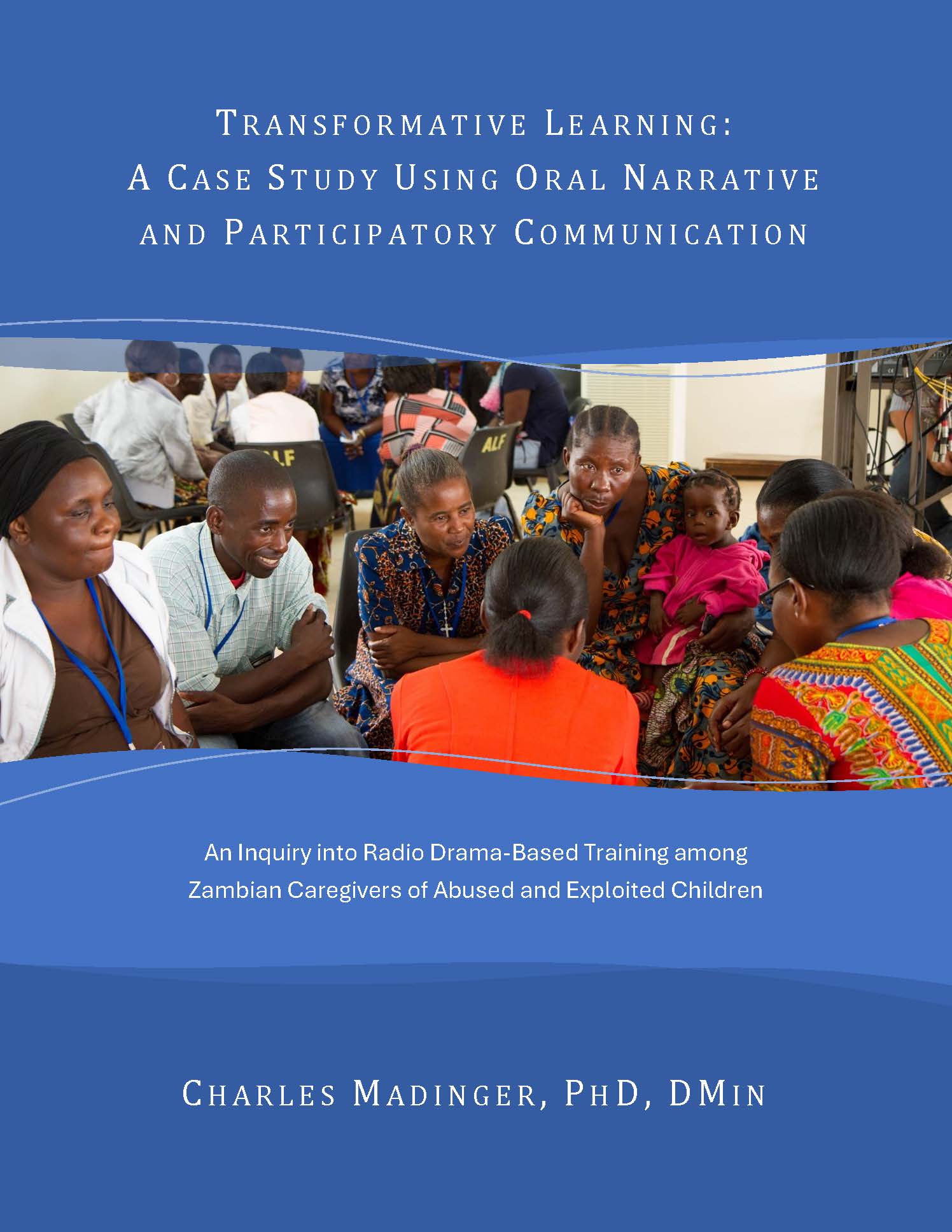An Inquiry into Radio Drama-Based Training among Zambian Caregivers of Abused and Exploited Children
by Charles Madinger
eBook ISBN: 978-621-96888-0-2
This research investigates instructional narrative interventions for transformative learning among high orality reliant peoples. Two research questions asked: “Does an oral strategy of radio drama in a participatory environment lead to significant changes in knowledge and beliefs,” with a hypothesis stating there would be significant positive changes; and “When listeners experience narrative transport can it affect receptivity leading to knowledge and belief change,” and the hypothesis stated that narrative transport would correlate to higher positive responses. The mixed methods design analyzed personal experiences and survey responses of treatment group and control groups. Quantitatively I assessed a treatment group using a matched pre/posttest survey related to learning goals and the Transportation Imagery Survey. The qualitative data was gathered in focus groups and personal interviews. The findings showed a significant change in treatment group in knowledge and beliefs (40%). The treatment group also scored 74% correct answers in contrast to the posttest only survey control group of 56%. The additional modified Transportation Imagery Survey (TMS) assessed the treatment group’s level of transport into the narrative (6.1/7) and a positive correlation (.65) to the change in answers for the posttest. The study presents relevant considerations for instructional communication designers and professionals serving higher orality reliant audiences and the power of participatory narrative instruction constructing healthier knowledge and beliefs.
A pastor given a second call building global communication strategies through-out the Global South. He leads the Institutes for Orality Strategies (I-OS) team from Manila specializing in orality training, research, and collaboration. Chuck studied at Fuller Theological Seminary (D.Min.) and the University of Kentucky (Ph.D.) teaching in schools, churches, and conferences. Roce and Chuck share two daughters and four grandchildren.


